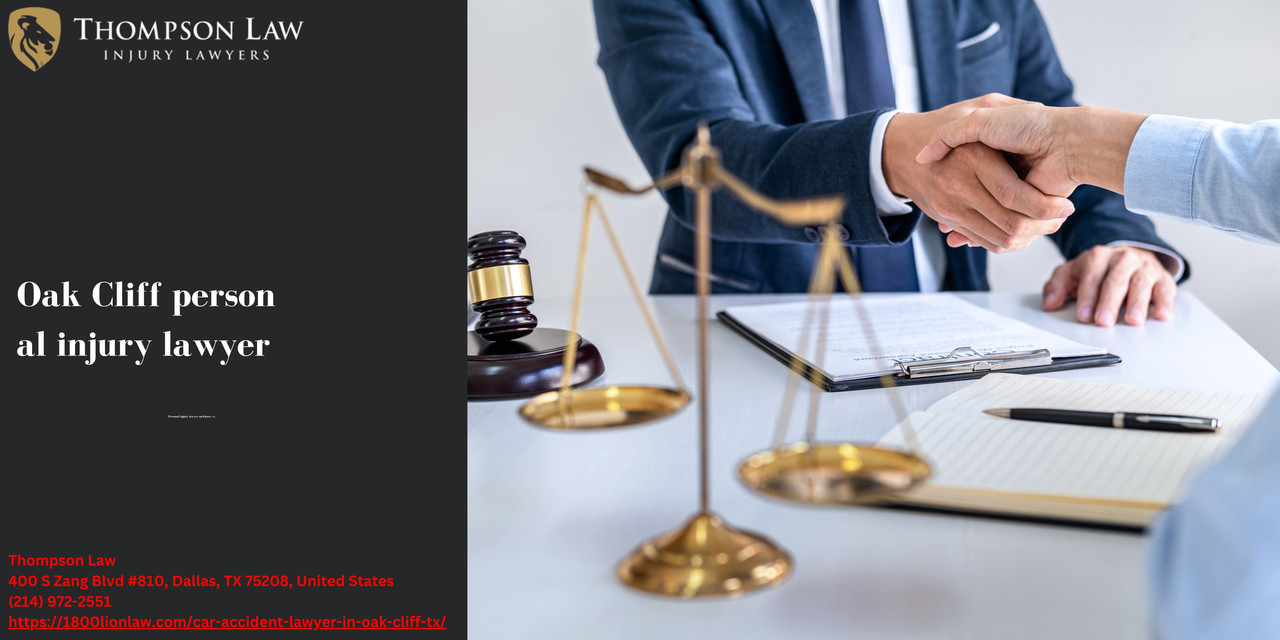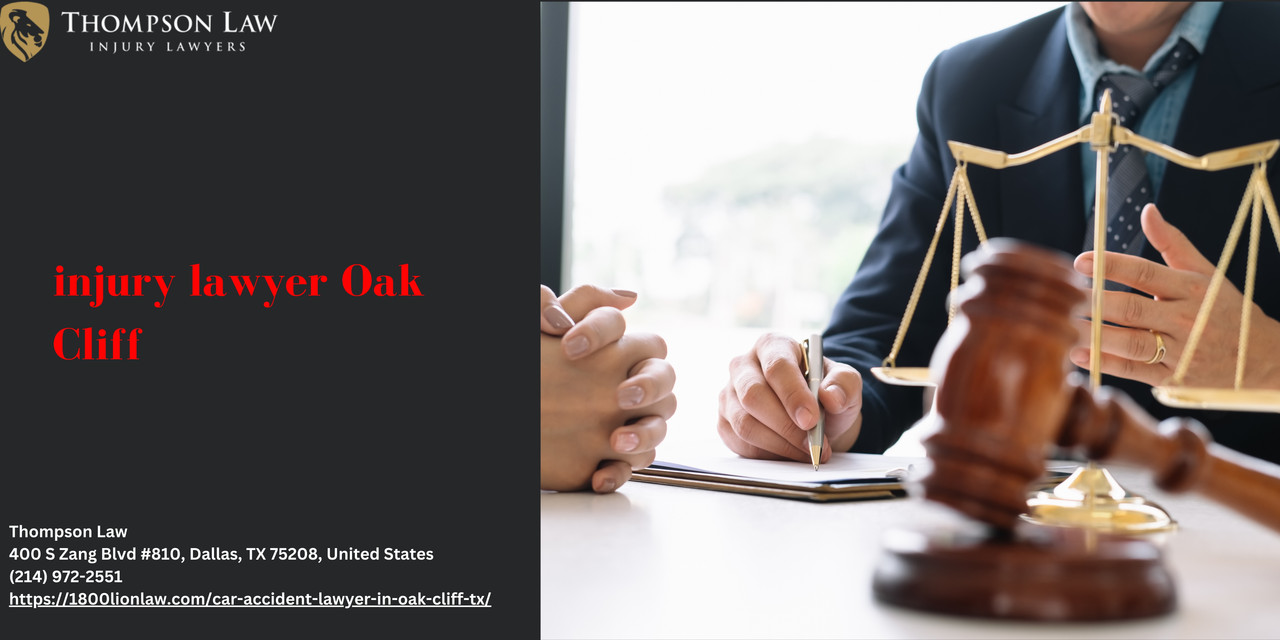Introduction
Navigating the aftermath of a car accident can be overwhelming. The emotional and physical toll is often compounded by the complexities of insurance claims and legal proceedings. This guide, crafted for those in Oak Cliff, aims to demystify the claims process, equipping you with knowledge and resources to advocate for your rights. With insights from seasoned personal injury attorneys Oak Cliff, this article will serve as a comprehensive roadmap through the intricacies of filing a claim after an auto accident.
Understanding the Claims Process: A Guide by Oak Cliff Car Accident Lawyers
What Is a Claim?
A claim refers to a formal request for compensation due to loss or injury sustained from an incident, such as a car accident. When another driver’s negligence leads to your injuries or property damage, you have the right to pursue compensation through their insurance provider.
Types of Claims in Auto Accidents
Personal Injury Claims- Involves seeking compensation for physical injuries resulting from an accident.
- Focuses on recovering costs associated with vehicle repairs or replacements.
- Addresses situations where the at-fault party lacks adequate insurance coverage.
The Importance of Legal Representation
Having experienced auto accident lawyers Oak Cliff on your side is crucial. They understand local laws and regulations that may affect your case and can negotiate effectively with insurance companies on your behalf.
Gathering Evidence After an Accident
What Evidence Should You Collect?
- Accident Reports: Contact law enforcement to obtain an official report. Photographs: Capture images of vehicle damage, road conditions, and visible injuries. Witness Statements: Gather contact information and testimonies from witnesses at the scene.
How Does Evidence Impact Your Claim?
The evidence collected forms the foundation of your claim, helping demonstrate liability and substantiating your losses. Strong evidence can significantly enhance your chances of receiving fair compensation.
Steps in Filing a Claim
Initial Steps to Take After an Accident
Seek Medical Attention- Prioritize your health; get evaluated even if injuries seem minor.
- Report the accident promptly, providing them with necessary details.
- Seek legal advice to understand your rights and options moving forward.
Filing Your Claim
Complete Required Documentation- Ensure all paperwork is accurately filled out and submitted within deadlines.
- Be prepared for negotiations; insurers often propose lower settlements initially.
- If negotiations fail, discuss potential litigation options with your attorney.
Common Pitfalls in the Claims Process
What Mistakes Should You Avoid?
- Delaying Medical Treatment: Not seeking timely medical care can weaken your case. Admitting Fault at the Scene: Avoid discussing fault; let authorities determine liability. Accepting Early Settlements Without Consultation: Don’t rush into accepting offers without evaluating long-term implications.
Understanding Compensation
What Damages Can You Recover?
Medical Expenses- Covers hospital bills, therapy costs, medication expenses, etc.
- Compensates for income lost due to inability to work post-accident.
- Accounts for physical pain and emotional distress endured due to injuries.
- Encompasses repair or replacement costs for damaged vehicles or personal items.
The Role of Insurance Adjusters
Who Are They?
Insurance adjusters assess claims filed by policyholders after accidents to determine payout amounts based on coverage limits and damages incurred.

How Do They Influence Your Claim?
While adjusters aim to settle claims efficiently, they may also seek ways to minimize payouts. Having knowledgeable legal representation ensures that you receive fair treatment throughout this process.
Negotiation Strategies with Insurance Companies
Preparing for Negotiations
Know Your Worth- Assess all damages accurately before entering negotiations.
- Be open-minded but don’t undervalue your claim during discussions.
- Keep records of all communications regarding your claim for reference.
FAQs about Car Accident Claims in Oak Cliff
1. How long do I have to file a claim after a car accident?
In Texas, you typically have two years from the date of the accident to file a personal injury lawsuit.
2. What should I do if my claim is denied?
Contact your attorney immediately; they can help you understand why it was denied and explore options for appeal or litigation.
3. Can I still recover damages if I was partially at fault?
Yes! Texas follows a modified comparative negligence rule which allows recovery as long as you’re not more than 50% responsible for the accident.

4. How are pain and suffering damages calculated?
These are often determined using various methods including daily rates multiplied by recovery duration or through total damages considered against similar cases (known as multiplier method).
5. What happens if I can't afford medical bills after my accident?
Discuss this situation with your attorney; they may work out payment plans or agreements with healthcare providers while your case unfolds.
6. Should I speak directly with the other party's insurance company?
It’s advisable not to engage directly without consulting an attorney first as any statements made could impact your claim negatively.
Conclusion
Understanding the claims process following a car accident is vital for anyone involved in such incidents in Oak Cliff, TX. The journey from gathering evidence through negotiation can be intricate but manageable when equipped with knowledge and legal support from skilled professionals like personal injury attorneys Oak Cliff or auto accident lawyers Oak Cliff who specialize in these matters.
If you're ever faced with such unfortunate circumstances, remember you're not alone—help is available every step of the way through reputable legal counsel dedicated to Thompson Law Oak Cliff car accident attorney advocating for your rights!
Contact Us:
Thompson Law
400 S Zang Blvd #810, Dallas, TX 75208, United States
Phone: (214) 972-2551